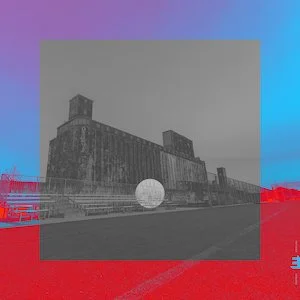Label: Edition Records, 2025
Personnel - Donny McCaslin: tenor saxophone; Jason Lindner: synth, piano, electric piano (except #7,8); Ben Monder: guitar (#1,3,4,7,9); Ryan Dahle: electric guitar (#4); Tim Lefebvre: electric bass, synth, electric guitar (except #3); Jonathan Maron: electric bass (#3); Nate Wood: drums (#2,3,6); Zach Danziger: drums (#1,4,5,7,9); Mark Guiliana: drums (#8).
Eclectic as ever, saxophonist and composer Donny McCaslin showcases the breadth of his talent on Lullaby For the Lost, his second release on Edition Records. Lushly produced, the album steps away from his usual electronics-heavy, groove-driven style to embrace a more rock-oriented approach. McCaslin is joined by longtime collaborators Jason Lindner on keyboards and Tim Lefebvre on electric bass, and reunites with guitarist Ben Monder, whose singular brilliance lit up earlier albums like Soar (2006) and In Pursuit (2007). As in Blow (2018), three drummers take turns behind the kit: Nate Wood, Zach Danziger, and Mark Guiliana.
The album begins with “Wasteland,” a darkly elegiac piece steeped in atmospheric guitars and sustained chords. Danziger lays down a polyrhythm-inducing pattern, while McCaslin’s saxophone moans with sorrow and erupts with indignation. The track eventually mutates into a storm of alternative rock and metal, Monder’s guitar seizing the spotlight before volume swells, flickers, and arrhythmic jolts lead it into disorientation. Rage Against the Machine comes to mind.
“Solace” surprises in an optimistic R&B vein, its radiant melody counterbalanced by reflective ambient backdrops. McCaslin delivers a memorable, soulful improvisation, while Wood drives the groove into funk-rock territory with effusive drumming. The vamp at the end recalls Red Hot Chili Peppers. Wood also anchors “Tokyo Game Show”, a contemporary fusion full of sharp turns, influenced by electronica, funk, hip-hop, and rock. Here, we find the bandleader sprinting gleefully into the altissimo register. “Stately”, meanwhile, is a tender ballad introduced by Jonathan Maron’s expressive bass double-stops.
The energy spikes on “Blond Crush”, a punk-tinged anthem recalling Green Day, with Monder, Lefebvre, and Ryan Dahle’s guitars charging ahead and Lindner’s synth erupting in brief bursts. The title track, initially inspired by Neil Young’s Le Noise (2010), unfolds as a powerhouse ballad built on calm chromatic moves. “KID”, a trio performance with Lefebvre and Guiliana, feels like a hybrid of New Wave and alternative electronic music, growing brawnier as it surges forward.
Invigorated by a distinctly modern sensibility, Lullaby For the Lost is a bold, exploratory, and deeply satisfying work—another testament to McCaslin’s restless creativity.
Favorite Tracks:
01 - Wasteland ► 02 - Solace ► 06 - Tokyo Game Show ► 07 - Lullaby For the Lost






